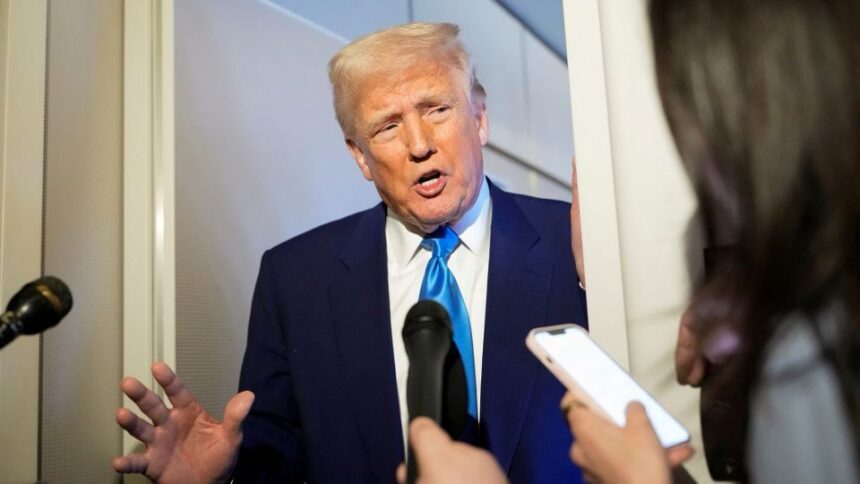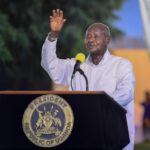President Donald Trump said he is “open to talking” with world leaders about new trade agreements, as global markets continued to plunge amid fears his sweeping tariffs could spark a worldwide recession.
His comments came after a weekend of golf in Florida and as Asian markets opened to fresh losses, dragging global indices further into chaos.
Despite growing backlash, Trump remained defiant. “I don’t want anything to go down. But sometimes you have to take medicine to fix something,” he said aboard Air Force One. While US futures pointed to more losses on Wall Street, Trump insisted the country is “getting stronger” and would emerge more powerful.
The administration has provided little clarity on whether the tariffs are meant to force immediate negotiations or form part of a broader plan to restructure the global trade system. Over the weekend, conflicting statements from senior officials only added to market confusion and investor anxiety.
Agriculture Secretary Brooke Rollins described the tariffs as a “national security issue,” claiming they would bring back “millions of jobs.” Yet in the same breath, she admitted the tariffs could be used as leverage, describing Trump as “the ultimate dealmaker” and hinting at behind-the-scenes negotiations with over 50 countries.
Massive anti-Trump protests erupted across several cities, with demonstrators also targeting Elon Musk, who has emerged as a key Trump ally. Meanwhile, some Republican lawmakers have expressed unease over the economic fallout, though the White House has remained largely dismissive of the concerns.
Trump has imposed tariffs on goods from 185 countries and territories, arguing that decades of unfair trade have hurt American workers. However, critics warn the aggressive measures could reverse economic gains and hit consumers with higher prices across sectors.
Economists say Trump’s vision of restoring the industrial economy of the past century is unrealistic, especially in a globalized world where the US economy has shifted toward services and technology. Manufacturing low-cost goods domestically would likely drive up production costs and raise living expenses for many Americans.
Despite the backlash, the administration appears unwilling to compromise. Trade adviser Peter Navarro said on Fox News that zero tariffs alone wouldn’t satisfy the US, demanding additional concessions on currency policies and trade regulations. “This is not a negotiation,” he said bluntly.
The president’s supporters argue the tariffs are long overdue and aim to correct historic imbalances. But with stock markets continuing to crash and the threat of a recession looming, critics say the administration is gambling with the economy and offering little in return.
Trump maintains the tariffs will eventually pay off, but many fear the damage is already done. Retirement savings have taken a hit, companies are warning of rising costs, and America’s trade partners are preparing retaliatory moves of their own.
As another volatile trading week begins, uncertainty continues to cloud Trump’s endgame. With no clear strategy and markets reacting sharply, the world is bracing for more economic upheaval unless the administration charts a new course — or follows through on its offer to talk.







